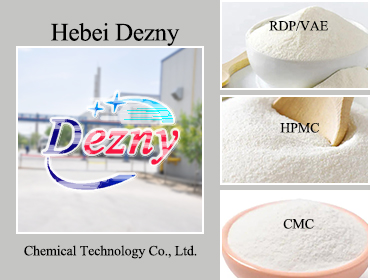
 2024-08-09- readings
2024-08-09- readingsIntroduction
In modern building construction, cement-based tile mortar is a key material widely used in tile laying. Its main function is to firmly bond tiles to the substrate, thereby ensuring the long-term stability and durability of the paving system. In order to meet the ever-increasing construction requirements and technical standards, hydroxypropyl methylcellulose (HPMC) as a chemical cellulose ether is widely used in the formulation of cement-based tile mortar. HPMC provides an important guarantee for the performance improvement of mortar with its unique thickening, water retention, ductility and construction performance improvement functions. This article will conduct an in-depth discussion on the chemical properties, functional effects and application of HPMC in cement-based tile mortar.
**Chemical properties and functional mechanisms of HPMC**
HPMC is a non-ionic cellulose ether obtained by etherification modification of natural cellulose. Because it has both hydrophilic and hydrophobic groups, it exhibits unique physical and chemical properties in aqueous solution. The role of HPMC in cement-based tile mortar is mainly achieved through the following key mechanisms:
1. **Thickening effect**: HPMC has a significant thickening effect, which improves the fluidity and workability of the mortar by increasing the viscosity of the mortar system. During the construction process, the thickening effect of HPMC helps the mortar maintain an appropriate consistency on vertical or inclined surfaces, prevents the mortar from sagging and sliding, and ensures that the tiles can be stably attached to the substrate surface.
2. **Water retention**: The water retention function of HPMC is one of its most critical characteristics in cement-based tile mortar. Since the hydration reaction of cement-based materials requires sufficient water, HPMC can effectively retain the moisture in the mortar and prevent the mortar from shrinking and incomplete cement hydration due to excessive water absorption by the substrate or environment. Adequate water retention not only promotes the full hydration of cement and improves the bonding strength, but also prevents the mortar from cracking early and improves the overall durability of the paving system.
3. **Improving the workability of mortar**: HPMC can significantly improve the construction performance of cement-based tile mortar, especially when laying large-area tiles or complex patterns. HPMC adjusts the rheological properties of the mortar, making it have excellent lubricity and easy flattening during construction, while extending the open time, so that construction workers have enough time to adjust and trim.
4. **Anti-shrinkage and cracking resistance**: In cement-based mortar, the water retention effect of HPMC can effectively slow down the rate of water loss during the drying process of the mortar and reduce the shrinkage rate of the mortar. This property greatly reduces the risk of cracks caused by shrinkage in the mortar, thereby improving the overall durability of the paving system.
5. **Improving the bonding strength of mortar**: HPMC effectively improves the bonding strength of cement-based mortar through its thickening and water retention effects. HPMC can optimize the bonding properties of the mortar, ensure a strong connection between the mortar and the tile and substrate, and prevent the tile from hollowing, shifting or falling off.
**Specific application of HPMC in cement-based tile mortar**
1. **Optimize the water retention of mortar**: In the formula of cement-based tile mortar, the water retention function of HPMC is particularly important. By adding HPMC, the water retention rate of mortar can be significantly improved, ensuring that cement is adequately supported by water in the hydration reaction, avoiding incomplete cement hydration and decreased mortar strength due to excessive water loss. Mortar with good water retention not only improves the paving effect, but also reduces cracks and hollowing caused by shrinkage in the later stage.
2. **Improve the construction performance of mortar**: The application of HPMC in cement-based tile mortar can significantly improve its construction performance, especially in the process of paving tiles on large areas or facades. HPMC adjusts the viscosity and rheology of mortar to make it more operable and stable during construction, reduce the sagging of mortar on vertical surfaces, and ensure the accuracy and firmness of tile laying.
3. **Enhance the bonding strength of mortar**: The thickening effect of HPMC in cement-based tile mortar not only improves the workability of mortar, but also improves the strength of the bonding layer by optimizing the mortar ratio. HPMC can ensure a strong bond between mortar, tiles and substrates, thereby preventing tiles from loosening and shifting during use, and extending the service life of the paving system.
4. **Improve the crack resistance of mortar**: The water retention effect of HPMC not only improves the bonding strength of mortar in cement-based tile mortar, but also significantly reduces the risk of crack formation in mortar by slowing down the shrinkage process of mortar. By optimizing the hydration reaction of mortar, HPMC improves the crack resistance of mortar and ensures the stability and durability of the paving system in long-term use.
**Application examples and practices**
In actual applications, the selection and addition amount of HPMC need to be optimized according to the specific requirements of cement-based tile mortar. For mortars that require higher water retention and crack resistance, high-viscosity HPMC is the first choice, and the addition amount is usually between 0.1% and 0.5%. For mortars that require good rheology and easy construction, it is more appropriate to choose HPMC with medium and low viscosity. In the process of formula design, the amount of HPMC added needs to be precisely controlled to ensure that the overall performance of the mortar reaches the best state.
**Conclusion**
As an important additive in cement-based tile mortar, hydroxypropyl methylcellulose (HPMC) provides important performance guarantees for tile paving systems through its unique thickening, water retention, improved construction performance, crack resistance and improved bonding strength. Reasonable use of HPMC can significantly improve the construction performance and durability of cement-based tile mortar, and meet the needs of modern construction for high-quality tile paving materials. With the development of the construction industry, the application prospects of HPMC in cement-based tile mortar will be broader, promoting further innovation and development of building materials technology.